20+ SAMPLE Conference Budget
-
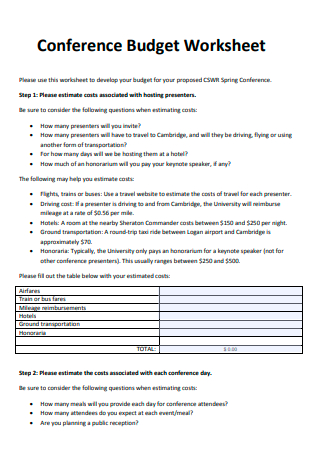
Conference Budget Worksheet
download now -
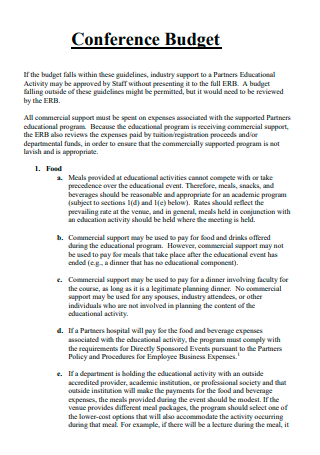
Basic Conference Budget
download now -
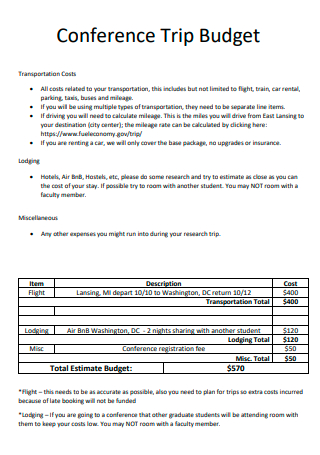
Conference Trip Budget
download now -
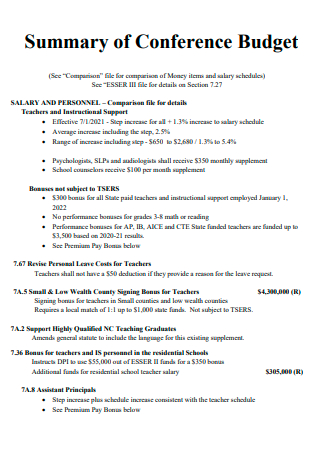
Summary of Conference Budget
download now -
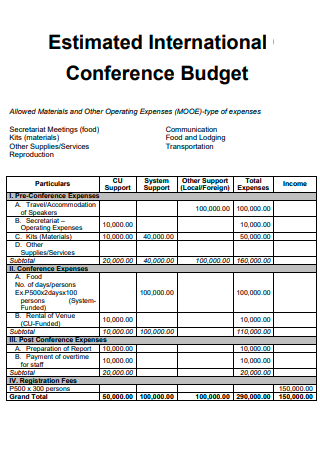
Estimated International Conference Budget
download now -
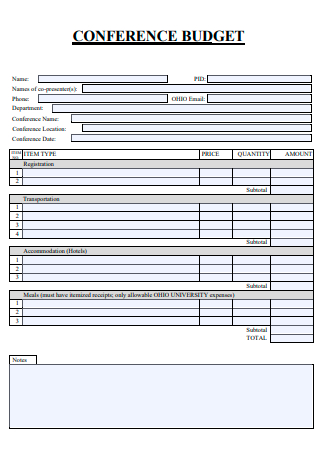
Formal Conference Budget
download now -
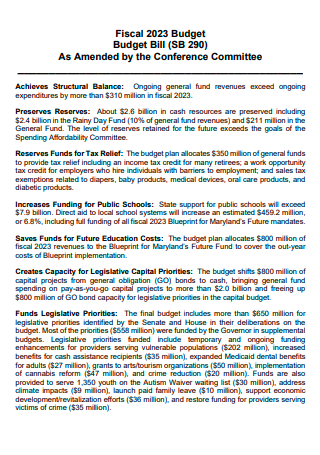
Conference Committee Budget Bill
download now -
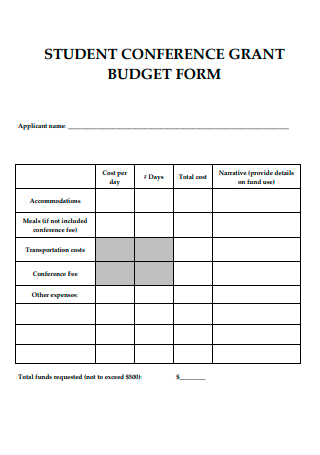
Student Conference Grant Budget Form
download now -
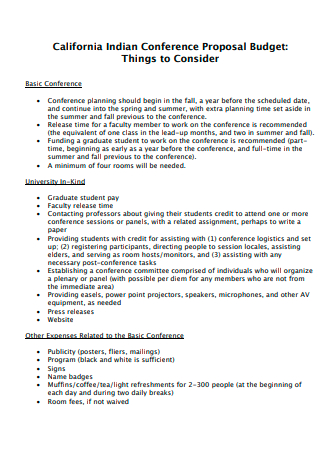
Conference Proposal Budget
download now -
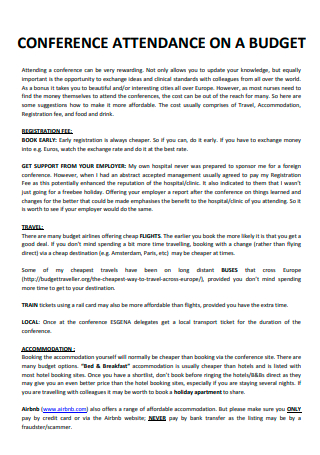
Conference Attendance Budget
download now -
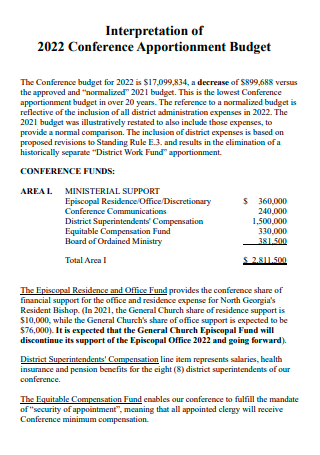
Conference Apportionment Budget
download now -
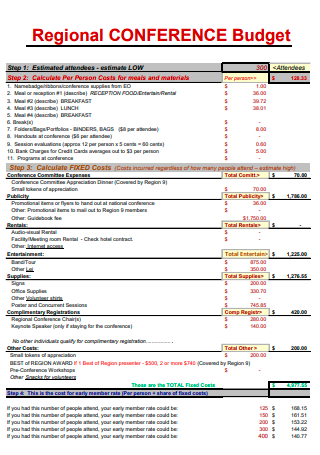
Regional Conference Budget
download now -
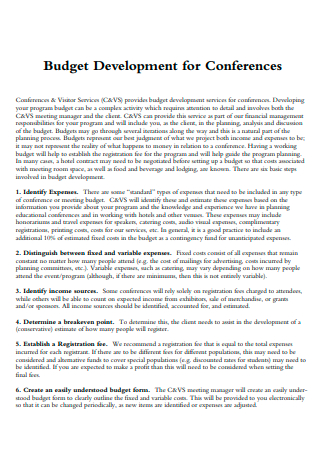
Development For Conference Budget
download now -
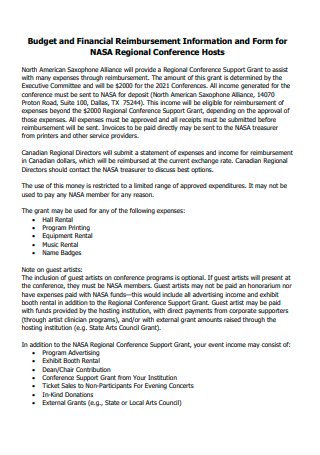
Regional Conference Hosts Budget
download now -
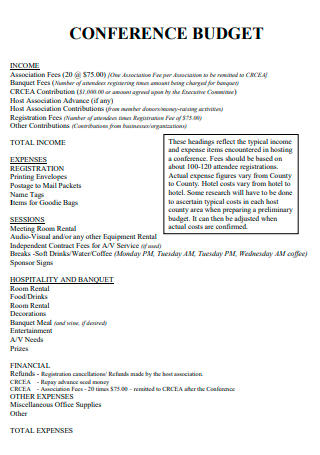
Conference Budget in PDF
download now -
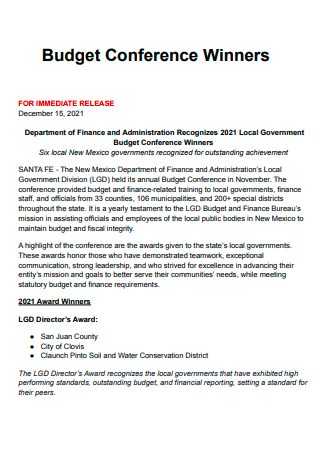
Conference Winners Budget
download now -
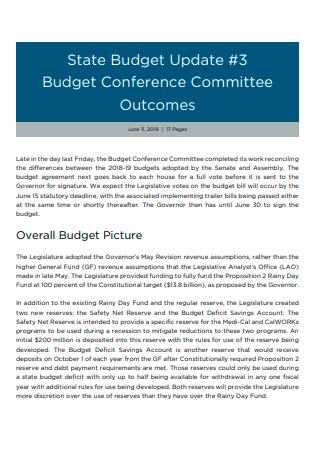
Conference Committee Budget Update
download now -
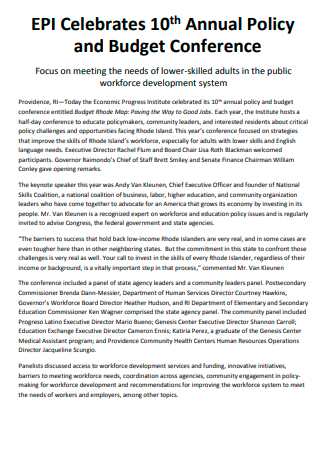
Annual Policy and Conference Budget
download now -
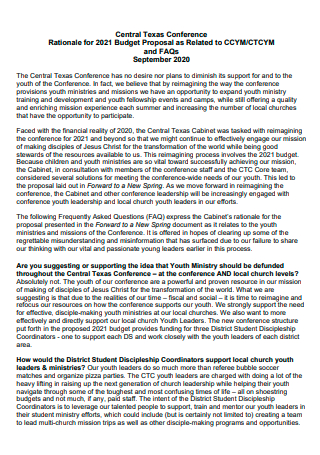
Conference Budget Proposal
download now -
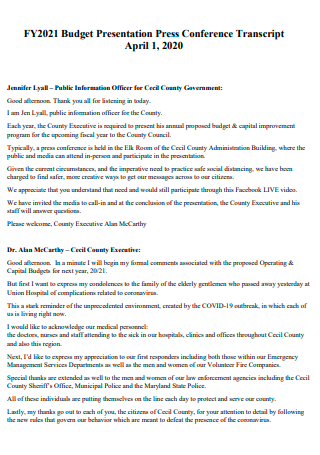
Conference Transcript Budget
download now -
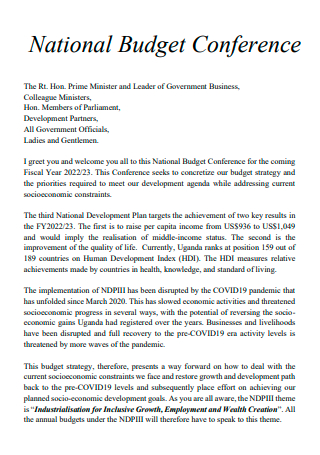
Conference National Budget
download now
FREE Conference Budget s to Download
20+ SAMPLE Conference Budget
What Is a Conference Budget?
What Goes Into a Conference Budget?
Cost-Effective Tips for Conference Organizers
How to Create a Conference Budget
FAQs
What is a conference budget?
How do you set a budget for a conference?
How much do conferences cost?
What Is a Conference Budget?
A conference budget is a comprehensive budget that details the different costs and other financial data of a conference event. The budget is a tool meant to maximize the outcome of an event with a careful calculation of cost while avoiding overspending.
According to an article by the School of Advanced Study in the University of London, there are six major types of conferences. These are a basic conference, symposium, seminar, colloquium, workshop and roundtable.
What Goes Into a Conference Budget?
A conference is a widely practiced and common event. It can come in various shapes and sizes as well. For example, it can be in the form of a small intimate meeting or a large assembly. But one common denominator is the cost that is always incurred in mounting a conference event. The following examples are just some basic items that are typically included in a conference budget.
Cost-Effective Tips for Conference Organizers
Mounting an event, especially a large scale one, is no easy feat. Being an event organizer requires above average organizational and coordination skills. And one of the most fundamental tasks for any event organizer is skillful budgeting. The following examples are just some practical tips for budget-minded conference organizers.
How to Create a Conference Budget
To create a conference budget, you need to gather all the relevant data pertaining to the event. And if it’s convenience and ease you are after, there are tons of sample templates above that you can use as a reference guide. Simply select one that suits your needs and follow the basic steps below.
Step 1: Basic Event Information
The first step in crafting a conference budget is to state basic information about the conference. This includes the event name, location, time, date, and purpose. It is important to indicate these basic data in order to aid the reader in comprehending your budget plans and strategies. If the reader is not given a general idea of what kind of conference is being held, it could be potentially easier for anyone to question the budget. This can serve as an introductory section of your budget. The section does not need to be long, a brief and straightforward presentation of facts will do.
Step 2: Conference Requirements
If the previous section is a general description of the conference event, the next section dives more into the specific. In some cases, it is important to provide more depth and information about the event. This is especially applicable if the conference is a big-ticket event with hundreds of participants. Larger scale events often cost a great deal more than smaller and minor ones. Thus, detailing the specific conference requirements can help justify your budget plans and strategies. Conference requirements can include technical support needs, venue specifications, or even dietary restrictions. You can list these in plain bullet points for a more organized section.
Step 3: Proposed Budget
The next step should be dedicated to your budget. Once you think you have enough information about the various costs, you can then proceed to drafting a proper budget. Make sure to indicate all applicable conference expenses. For practical reasons, you can use a table to present your data. Be sure to double check each value for accuracy. Examples of conference expenses are enumerated and discussed in the previous sections. Label them accordingly and use a format that’s suitable and one that works for you. For more ideas, you can refer to the broad collection of sample budget templates.
Step 4: Actual Budget
After you have filled in your budget table, the work does not end there. Obviously, you would have to implement your budget plan. The last step is to allot a section of your worksheet or table for the actual amount. As the various phases of the conference event unfolds, you need to constantly update the values. This section is crucial because it serves as a point for comparison. When taken into account together with the proposed budget, it’s used for future reference and continuous learning and improvement. Usually, the lessons gained- including that of the budget- is incorporated in the post-conference or post-event report.
FAQs
What is a conference budget?
A conference budget is a formal budget that outlines the various expenditures of a conference event. The main purpose of creating a conference budget is to maximize resources without compromising cost. It can serve as a guide or reference so as to avoid excessive spending.
How do you set a budget for a conference?
To create a budget for a conference, you first need to have a firm understanding of the conference requirements. Once you have identified the different costs, create a detailed breakdown of all the conference expenses. Refer to the previous sections for examples of these expenses as well as a detailed instruction guide on how to make a conference budget.
How much do conferences cost?
The cost of organizing a conference would depend on a number of factors. The size, scale, duration and number of participants are just some major factors that would influence the cost of a conference. Hence, it is important for these to be taken into account because your budget will be based on these various considerations.
Organizing a conference event, regardless of size, will always incur some cost. From operating expenses to marketing costs, a budget is needed to keep track of these expenditures and also to avoid overspending. Browse the wide selection of sample templates above to get started on your own conference budget today!
